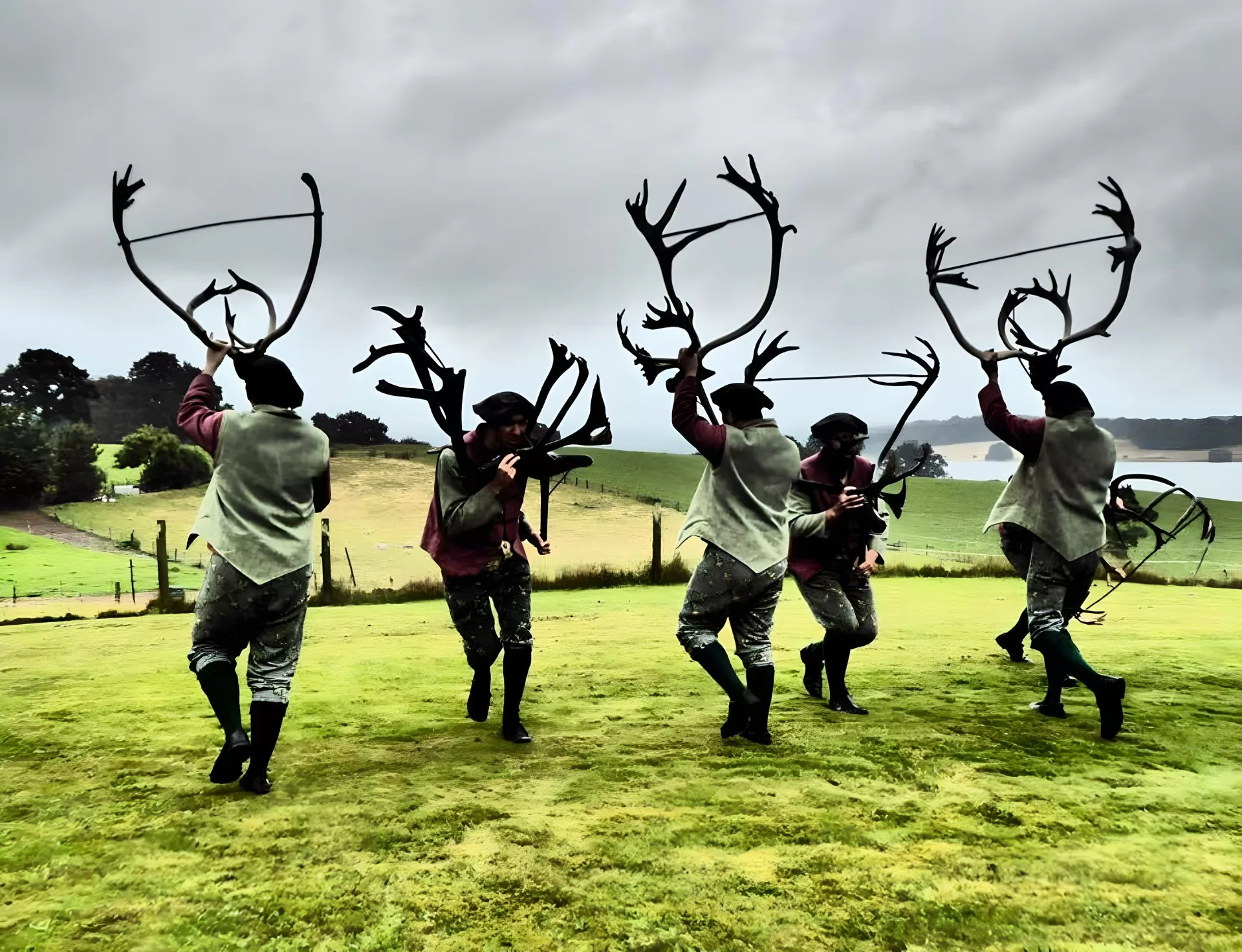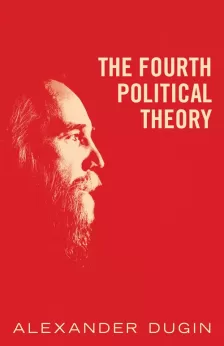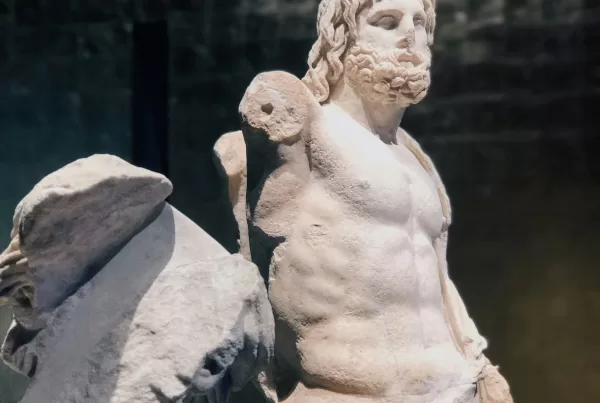On the Monday following the first Sunday after the fourth of September, the English village of Abbots Bromley comes alive with music, character, dancing and a number of large and ancient reindeer horns.
Lord Yngvi Frey, patron god of the Eng-lish, would certainly claim to have inspired the horns of fertility which are so proudly displayed by their modern day bearers, but what is known about this custom? On the day of writing this article, I bore witness to the event — a pilgrimage of sorts — and returned to tell all.
I rose at 5 am on this warm but dark September morning and prepared a fine harvest breakfast of bacon, sausages, eggs, tomatoes and mushrooms and drank raw milk. I pulled on my boots, jeans and leather jacket. By 6 am I was on the road, the thud of my twin-cylinder iron steed reverberating in my ears as the single headlight cut through early morning mist. Country lanes and old hedgerows were passed by as I neared my destination, the sun rising to my right casting long shadows across the dewy fields. There is something about September that awakens my spirit, even as the land prepares to die. Perhaps it is this impending doom — the seasonal Ragnarök — which inspires me to action, quickly, while there is still time. There is a smell in the air peculiar to the early onset of autumn which I notice and I like it. There is happiness and sadness at the time of the harvest, and some of the best days are had when the leaves are just beginning to turn. As I rode into the village of Abbots Bromley, something magic was in the air.
On the eve of the dance, there is music and merriment in The Goat’s Head Inn, but on the day itself, those tasked with carrying on this ancient ritual must be up and prepared before sunrise.
The dance centres around six huge sets of reindeer antlers of slightly varying sizes, the largest being 39 inches across and weighing just over 26 lbs. In 1976, number two horn was damaged, and whilst being repaired was carbon-dated by the Department of Geological Sciences at Birmingham University and the test result gave the date as 1065, plus or minus 80 years. The theory being that the horns were imported from Scandinavia around 1000 years ago.
The beginnings of the horn dance are not known, but it was said to have been performed at Berthelmy Fair in 1226.
Today the dance is played out by twelve folk, and by tradition they are always male. Six men carry the antlers, accompanied by Maid Marian (also seen as the Lady of May in spring fertility festivals), the Hobby Horse, the Jester or Fool, a boy carrying a bow and arrow, a boy with a triangle on which he beats time, and a musician who nowadays plays an accordion but in past years played a fiddle (there is a piece of music called ‘Abbots Bromley Horn Dance’, which is a jig. Other tunes are played such as ‘Flaxley Green Dance’ and so forth).
One cannot help but be entertained and bemused by the English; often traditionally portrayed as having such a firm and disciplined manner to become successful in war, yet taking to dancing with horns, on bizarrely contrived dates, dressed in colourful costume – and all to retain fertility on behalf of their local community.
It is a sight to behold as the great horns are raised high and the dancing and music begins! Woe to the participant who lacks vitality — the fool’s job is to whack any slacker with his inflated pig’s bladder! Such joviality! Such pagan capers!
One can thus see what a fantastic job the directors of the 1973 film The Wicker Man did in bringing to life the serious nature of harvest and fertility alongside the humour, music and sexuality of a community at one with nature.
For nature reflects this eccentricity. It is beautiful yet harsh. It is giving yet unforgiving. It brings life and takes life away.
He who fails to understand the rituals of our ancestors will fail to understand nature. We may be living in the modern age, where direct and full comprehension of the gods is not entirely possible, but in nature we have a physical connection, aided and assisted by our rituals and customs and practices.
The enemies of our folk want to separate us from this connection; they do not understand it and are fearful of it.
The Abbots Bromley Horn Dance epitomises our connection with ritual — where did it begin? Why do we do it? How did our ancestors practise their rites?
We know, but we don’t know. By this I mean we have a ‘kenning’; a deep understanding that we cannot put into words yet deep down we know, and deep down we feel.
Hail Yngvi Frey, Lord of the Eng-lish lands, horned one, bringer of fertility and patron of the harvest!










That is very interesting.